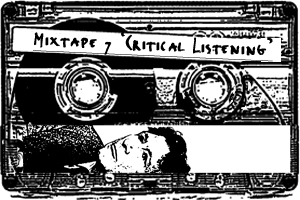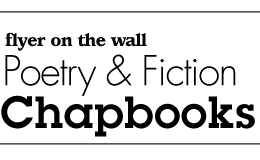
 |
Mixtape VII, Critical Listening
CLICK HERE TO LISTEN |
Music As Reading: Mixtape VII, Critical Listening, after Edward Said’s Music at the Limits
His unusual understanding of the human spirit and of the human being was perhaps a consequence of his revelatory construct that parallels between ideas, topics and cultures can be of a paradoxical nature, not contradicting but enriching one another. This is one of the ideas that I believe made Said an extremely important figure. His journey through this world took place precisely at a time when the value of music in society began to decline.
Just as the obvious entry-point for a mixtape about the relationship between music and poetry was a poet – Don Paterson, for example – who has written poetry about music, so it makes sense to discuss music’s interaction with literary criticism through a lens of a theorist obsessed with music. Edward Said was certainly that – he became, after all, music critic for The Nation in 1986, and the articles he wrote betray an easy familiarity with a number of composers’ entire lives’ work, not to mention the nuances which define the various recordings and legendary performances of key individual pieces and represent the subtler textures of the 20th century’s make-ups and break-ups with classical music. But the subject, Said and Western Classical Music, isn’t as simple as a mere he wrote about it. He also often made sense of his day job, that is, the study of literature and sociology, though it (and vice versa) and seems to have depended on the energies and releases of music for the currents of thought which produced his best writing. Daniel Barenboim has argued, in the foreword to a new-ish collection of Said’s musical musings, Music at the Limits, that at a time when ‘music has become isolated from other areas of life; it is no longer considered a necessary aspect of intellectual development,’ Said ‘used his musical experience and knowledge as a base for his convictions about politics, morality, and intellectual thought.’ For Said, music wasn’t simply a potential focus for criticism: it was criticism, its senses and its soul.
(*Music at the Limits: three decades of essays and articles on music by Edward Said is published by Bloomsbury*)
Part one, LITERARY INTERSECTIONS …It came naturally to Said, for example, to quote Keats when analyzing a performance of Bach… (Daniel Barenboim)
…Mahler’s Kindertotenlieder with its formidable economy of means, its understatement and calm, its almost total control of difficult material…The range of emotions offered in the cycle, as in Gerard Manley Hopkins’ late sonnets, is intense but not great… (‘Music and Feminism’)
Kindertotenlieder: Nun Will Die Sonn’ So Hell Aufgeh’n – Gustav Mahler
Kindertotenlieder: In Diesem Wetter – Gustav Mahler
Much of the great outburst of intellectual energy in recent literary criticism has focused on the difficulty, even the impossibility, of interpretation…Does the music mock the action? Is the music meant to accentuate the plot’s socially acceptable conventions, thus disguising Mozart’s subversiveness? Or is there some as yet undiscovered notion of counterpoint or accompaniment that yokes the two elements together so strangely? (‘The Barber of Seville, Don Giovanni’)
The Barber of Seville: Largo al Factotum – Gioachino Rossini
Don Giovanni: La ci darem la mano – Wolfgang Amadeus Mozart
…Most literature on opera doesn’t touch Handel, and when…books do, he is reduced to clichés that render him a boring imitation of Moliere… (‘Giulio Cesare’)
Giulio Cesare: Se Pietà – George Frideric Handel
Giulio Cesare: Da tempeste il legno infranto – George Frideric Handel
Towards the end of E. M. Forster’s A Passage to India, as the spiritually exhausted Fielding is sailing home, he comes through the Suez Canal into the Mediterranean, “the human norm”…Something like that experience of Fielding’s (minus the offensive aspects) occurs in anyone who tries to grasp the significance of Beethoven’s life and music. (‘The Vienna Philharmonic’)
Symphony No. 3 in E Flat Major, Op. 55 ‘Eroica’: I, Allegro Con Brio – Ludwig van Beethoven
Symphony No. 5 in C Minor, Op. 67: IV, Allegro - Presto – Ludwig van Beethoven
Part two, MUSIC AS THOUGHT-CATALYST …Classical Western music was part of our daily life. Edward listened to music when he worked and played the piano when he took a break or needed to relax… (Miriam Said)
…I believe that it was Glenn Gould’s death in 1982 that impelled Edward to write seriously about music. The realization that Glenn Gould’s early demise ended an eccentric pianist’s brilliant career compelled Edward to probe deeply into Gould’s life and musical achievements… (Miriam Said)
Intermezzo No.2 in A Major, Op. 118: Andante teneramente – Johannes Brahms
Concerto for Piano and Orchestra No. 5 in F Minor, BWV 1056: II, Largo - Instrumental – Johann Sebastian Bach
This is why I believe we must try to penetrate the Israeli consciousness with everything at our disposal. Speaking or writing to Israeli audiences breaks their taboo against us…it is why Barenboim’s performance of Wagner, although genuinely painful for many who still suffer the real traumas of anti-semitic genocide, has the salutary effect of allowing mourning to move on another stage. (‘Barenboim and the Wagner Taboo’)
Gotterdammerung: Act 3 Funeral March – Richard Wagner
Tristan und Isolde: Act 3 “Mild und leise wie er lachelt” – Richard Wagner
…Adorno writes as Strauss’ contemporary, who saw in Strauss an aesthetic practice opposed to that of the second Viennese school whose cause Adorno served as social champion and philosopher. Nevertheless Strauss’ career rests, I think, on altogether more interesting grounds than Adorno allows, and these are revealed almost as often as one of his works is performed today… (‘Richard Strauss’)
Vier Letzte Lieder, Op. posth.: 4, Im Abendrot (Eichendorff) – Richard Strauss
Der Rosenkavalier: Act III, Hab’ mir’s gelobt – Richard Strauss
…Edward was exploring the idea of “late style”. He determined that what composers wrote towards the end of their lives was characterized by “intransigence, difficulty and unresolved contradictions,” thoughts that evolved into a book…The last essay in this collection, a review of Maynard Solomon’s book on late Beethoven, was published…two weeks before his death. It is ironically titled ‘Untimely Meditations’… (Miriam Said)
33 variations in C Major on a waltz by Diabelli, Op. 120, “Diabelli Variations”: Variation XIV, Grave e Maestoso – Ludwig van Beethoven
33 variations in C Major on a waltz by Diabelli, Op. 120, “Diabelli Variations”: Variation XXIV, Fughetta: Andante – Ludwig van Beethoven
33 variations in C Major on a waltz by Diabelli, Op. 120, “Diabelli Variations”: Variation XXVI, Piacevole – Ludwig van Beethoven
Sonata No. 10 in G Major, Op. 96: Alegro moderato – Ludwig van Beethoven





